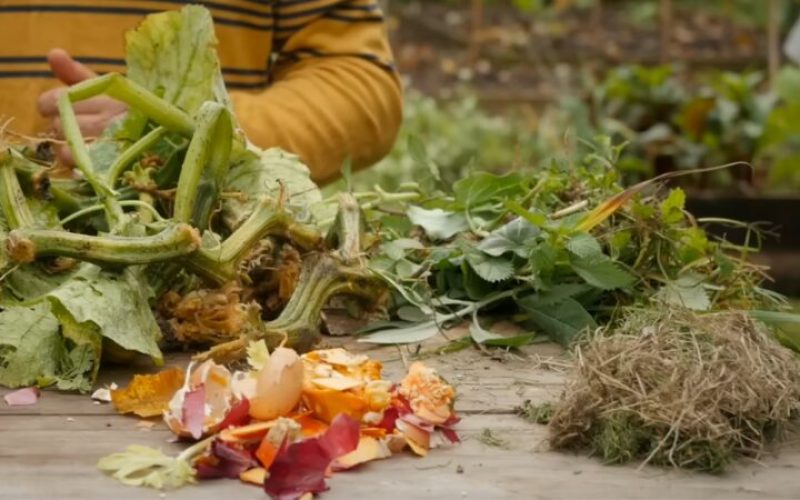If you’ve got a green thumb or just a passion for reducing waste, you’re in the right place. I’m here to talk about a topic that’s as old as dirt but as valuable as gold: composting.
And not in a way that makes it sound like rocket science or some ancient secret. Nope. It’s pretty straightforward, and I’ll keep it that way.
What Exactly Can Composting Do?
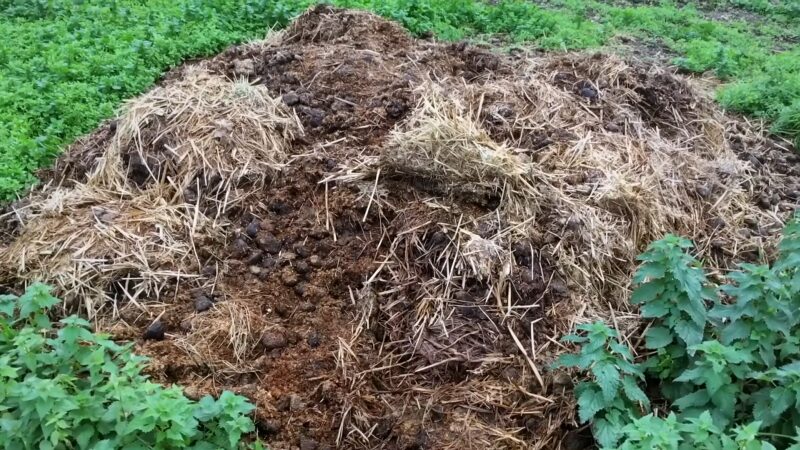
It’s all about turning your everyday leftovers into something that your garden will thank you for. A natural process that transforms your kitchen scraps, leaves, and other organic materials into a nutrient-packed soil booster.
People often call this end product “black gold,” and for good reason. It’s loaded with stuff plants love: nitrogen, phosphorus, potassium.
It doesn’t just stop there; compost also does wonders for your soil’s structure, moisture retention, and the bustling community of beneficial microorganisms living in it.
It also provides an ideal foundation for cultivating organic seeds, leading to the growth of robust and healthy plants from start to finish.
Just about every gardener knows about the three main fertilizers, the primary nutrients required by plants: nitrogen (N), phosphorus (P), and potassium (K). – Planet Natural Research Center
Why Compost?
- Sustainability: Reduces the need for synthetic stuff in your garden, like fertilizers and pesticides. More green, less mean.
- Soil Health: It’s similar to a spa treatment for your garden’s soil since it enriches it and amends its quality.
- Waste Reduction: Turns your “garbage” into garden gold, reducing what ends up in the landfill.
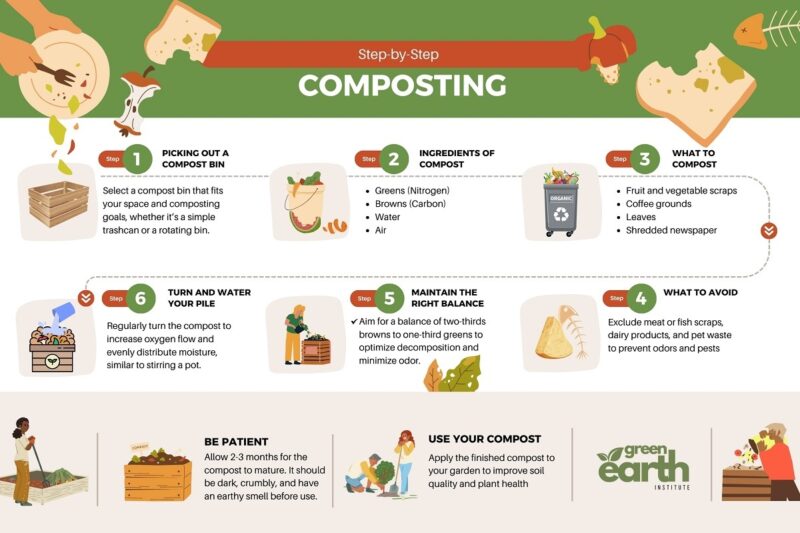
Getting Started
Picking out a compost bin is your first step. What you choose depends on how much space you have, what you plan to compost, and how involved you want to get.
From simple trashcan bins to fancy rotating ones, there’s something for every level of enthusiasm.
Ingredients of Compost
Here’s the recipe for successful composting:
- Greens (Nitrogen): Kitchen scraps and fresh yard waste.
- Browns (Carbon): Dried leaves, shredded newspaper.
- Water: Keeps things moist but not soggy.
- Air: Aeration is crucial; it helps microorganisms thrive and break down materials.
What Goes In and What Stays Out
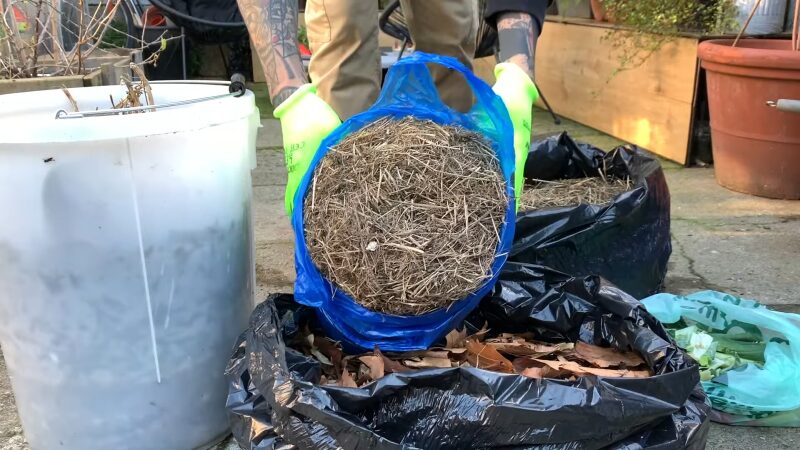
Things to include
- Fruit and vegetable scraps
- Coffee grounds
- Leaves
- Shredded newspaper
Veggies and fruits are the quintessential compostable foods. You can compost them in any form: scraps and peels, raw or cooked, and even when rotten. – Kelsey Dimberg
What to avoid
- Meat or fish scraps
- Dairy products
- Pet waste
The Process
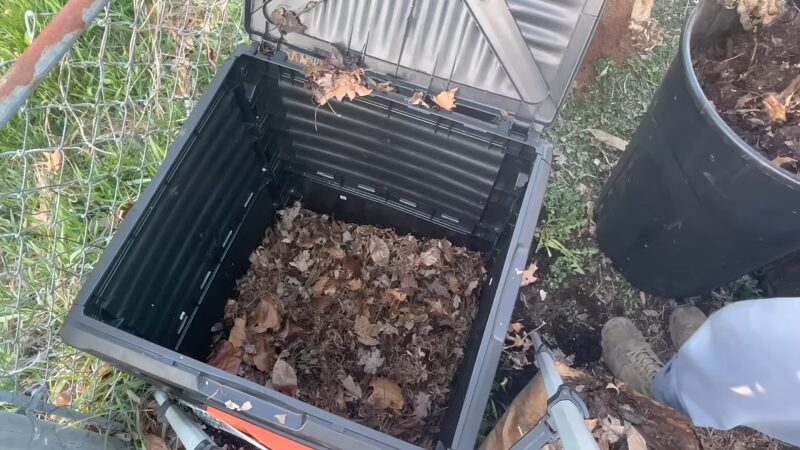
I suggest you aim for a balance that encourages decomposition without turning your compost bin into a science experiment gone wrong.
The rate of decomposition of organic material depends on the makeup and surface area of the material being composted, availability of moisture, and aeration. – Muaid S. Ali
Balance Is of the Essence
My ideal mix is roughly two-thirds brown to one-third green. Too much of one over the other, and you might end up with a smelly mess or a pile that just sits there, judging you.
Aeration and Moisture Are the Dynamic Duo
Turning and watering your pile are part of the gig. You want to mix up the materials to increase oxygen flow and keep the moisture level consistent. It’s like stirring a pot to prevent burning, but for compost.
Timing Is Everything
I advise some patience here. Your compost will be ready in about 2-3 months, looking dark, crumbly, and smelling earthy. Using it too soon can rob your plants of nutrients or introduce harmful microbes into your garden, so be very careful and patient in this step.
Composting in My Life
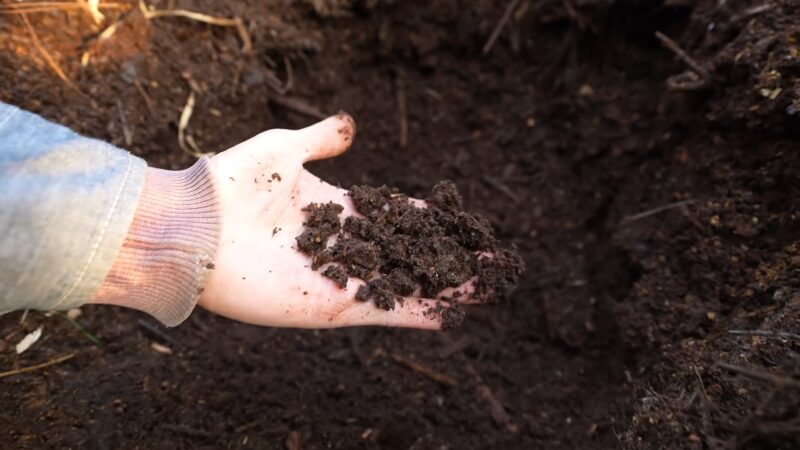
Why am I into composting? Well, I had to deal with some pretty stubborn soil in Vermont. It was either to break the bank on soil amendments or get creative.
Composting offered a natural, cost-effective solution to improve soil quality and support a more sustainable way of gardening for me.
Small Spaces, Big Ideas
You don’t need a farm to start composting. Even in small spaces, strategies like compact bins, shredding materials finer, and layering correctly can make composting doable.
Worms Are Very Important
Vermicomposting is another route, especially if you’re tight on space or just starting out. Worms speed up the decomposition process, making it an efficient way to compost kitchen scraps.
Vermicomposting is a process that relies on earthworms and microorganisms to help stabilize active organic materials and convert them to a valuable soil amendment and source of plant nutrients. – Rhonda Sherman
Troubleshooting and Advanced Techniques
Running into issues? Adjusting the carbon-to-nitrogen ratio, managing moisture, and ensuring proper aeration usually fixes most of my problems.
For those looking to level up their composting game, exploring hot composting or experimenting with different materials and compost activators can offer new challenges.
The Bigger Picture
Composting is more than just a way to feed your garden. It’s a step towards living more sustainably, reducing waste, and closing the loop in our natural lifecycle. It shows how interconnected we are with the environment around us and the impact we can have, one compost bin at a time.
So, there you have it. Composting isn’t some mystical, complex ritual. It’s about getting your hands dirty (not that they weren’t already if you’re gardening) and giving back to the earth. It’s rewarding, both in the satisfaction of reducing waste and in watching your garden thrive on what you’ve given it.
I’m Cameron Lowery, an agriculturist based in the beautiful state of Vermont. Through my writing, I’ll guide you on how to maintain your gardens effectively while embracing sustainable practices.

